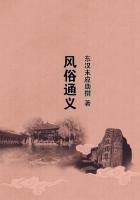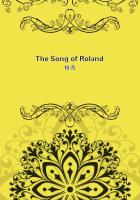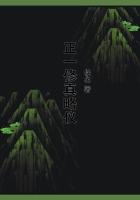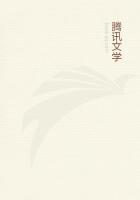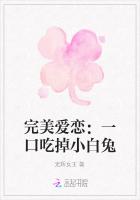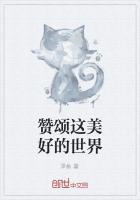Admitting a deductive method to be necessary,Mill distinguishes the 'direct'and the 'inverse methods.'(118)The direct method is that of reasoning from one 'law of human nature,'considering,of course,the outward circumstances.This justifies the system of political economy,which considers men as acting solely from the desire of wealth.He points out that fallacies may here arise from applying to one state of society what is true of another;but he also holds that one who knows the political economy of England,or even of Yorkshire,knows that of all nations,if he have good sense enough to modify his conclusions.(119)Mill admits fully that this method can only give us 'tendencies'--results which are true if certain conditions,never fully assignable,are actually secured;and that it therefore requires to be constantly checked by verification,that is,by showing that the results are confirmed by direct observation.The admission,however,that such a method is in any case admissible separates him from Comte,who held that we must in all cases start from historical generalisations,not from independent 'laws of human nature.'(120)Comte,in fact,rejected Mill's psychology and political economy as pseudo-sciences,and the difference is really vital.Mill,however,was prepared to accept much of Comte's teaching,and in particular allows the legitimacy of the 'historical method.'Upon this he writes a chapter,(121)which shows no want of appreciation of Comte or of the great French writers by whom,as his Dissertations show,he had been deeply impressed.(122)He complains of the English want of interest in such matters.They know nothing in French literature except the novels of Balzac and Euge Sue,and are not aware that the French historians greatly surpass even the Germans.(123)He points out the importance of the conception of progress and of the great modifications of human character.Still,he charges the French with a misconception.History can never give us a 'law of nature,'only 'empirical laws,'which are not scientific till duly based upon psychology and 'ethology.'Comte alone has seen the necessity of a deeper foundation;and he proceeds to give an admiring account of some of Comte's conclusions.Especially he insists upon the necessity of connecting the social phenomena with the intellectual development of mankind.This Comte alone has attempted systematically,and he ends by emphatically adhering to the doctrine of the three stages --theological,metaphysical,and positive.The essential difference,however,remains.Comte held that we must not explain humanity by man,but man by humanity.(124)To Mill,of course,this savoured of mysticism.
In any case,it marks the divergence of the two:Mill is a thorough individualist.He thinks it absolutely necessary to base sociology upon 'ethology,'that is,a theory of the individual character,and this again must be based upon psychology.
Sympathising with Comte's general purpose,and warmly admiring some of his results,Mill adheres to a doctrine which was sure to bring him into conflict with his master.To create the moral sciences,we must start from a scientific psychology.This means that we must work on the lines of Hartley,James Mill,and his own younger contemporaries,Professor Bain and Mr Herbert Spencer.The corollary from psychology is ethology,or the science of character.This view does not conflict with the admission of the great importance of some historical method.At present,it needs only to be said that Mill accepts that method very cordially,subject to two conditions.First,he holds that some social sciences --political economy being,in fact,the only one to be clearly specified --can be deduced from ethology and psychology independently of history,though requiring verification from history.Secondly,he holds that the historical method cannot reveal true 'laws of nature'unless it is properly connected with psychological data.How far Mill really appreciated the significance of the historical method,or perceived its true relation to other departments of thought,must be left for consideration.
NOTES:
1.Autobiography,p.226.
2.Logic,p.389(bk.iii.ch.xxi,section 1).I quote from the popular edition of 1898.Book,chapter and section are generally applicable to former edition.
3.See letter in note to chapter upon Mill in Taine's History of English Literature.
4.James Mill's Analysis,i.352n.
5.See an interesting article in G.Croom Robertson's Philosophical Remains (1894),pp.28-45.
6.Logic,Introduction,section 5.
7.Ibid.p.29(bk i,ch.iii,section 1).
8.Ibid.p.8section 7.
9.See John Grote's Exploratio Philosophica (1865),p.209n.
This book is,I think,by far the most interesting comtemporary discussion of Mill,Hamilton,and Whewell.It was,unfortunately,desultory and unfinished,but it is full of acute criticism,and charmingly candid and modest.Mill's Logic is especially discussed in chapters viii and ix.Grote holds,and I think truly,that Mill's attempt to divide metaphysics from logic leads to real confusion,and especially to an untenable mode of conceiving the relation between 'things'and thoughts.I cannot discuss Grote's views;but the book is full of interesting suggestions though the result are rather vague.See the excellent account of Grote by the late Croom Robertson in the History of National Biography.
10.Mill,in his review of Whately,refers to Du Trieu (whose treatise had been privately printed by him and his friends),Crakenthorpe and Burgersdyk;and in the Examination of Hamilton's Philosophy (ch.xxii)quotes also Sanderson,Wallis,Aldrich,Keckermann,Bartholinus,and Du Hamel as the 'authorities nearest at hand'.There is nothing,as I am told by the learned,exceptionally interesting in Du Trieu;and the selection was probably accidental.
11.Logic,p.13(bk.i,ch.ii,section 1).

